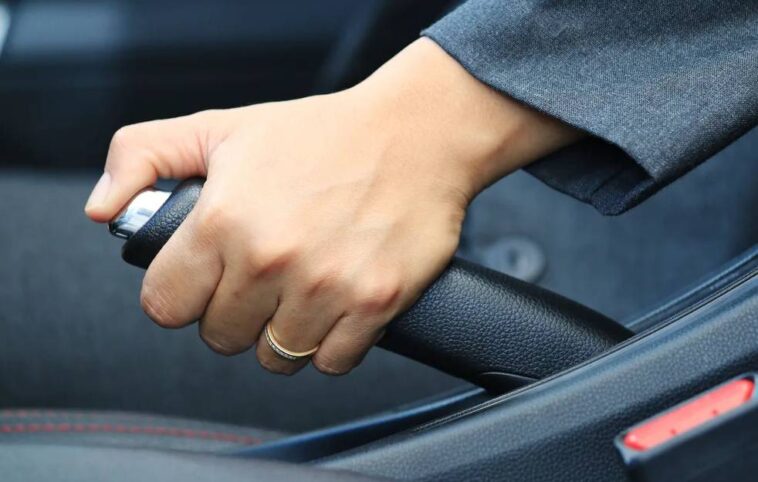How A Car Will React On Sudden Handbrake? If you are someone who just learned to drive and now you are thinking to try something new and adventurous so we would like to tell you that it will not only put you in trouble but it may lead to ruining your car. So, as you know that driving a vehicle requires careful attention and adherence to safety guidelines to prevent accidents and ensure the well-being of both the driver and passengers. One crucial aspect of safe driving is understanding the potential hazards of suddenly pulling the handbrake while the vehicle is in motion. This seemingly innocent action can lead to catastrophic consequences due to the physics and mechanics involved.
Now, as we told about some experiments so people usually especially those who freshly got a car, often think that what will happen if they suddenly apply the break, and behind this, they usually think that the car will drift. But illuminating your lack of knowledge we would like to help you in the matter. So, when a driver abruptly pulls the handbrake while the vehicle is in motion, it can cause an immediate and drastic disruption to the stability and control of the vehicle.
The handbrake is designed to engage the rear wheels’ braking system, which can lead to an uneven distribution of braking force. This imbalance can result in the rear of the vehicle losing traction, leading to a skid or spin. As a result, the driver may lose control over the vehicle’s direction and pose a significant risk to themselves and other road users.
What If You Suddenly Pull The Handbrake?
One of the critical reasons to avoid suddenly pulling the handbrake at speed is the potential damage it can inflict on the vehicle’s tires and braking system. The abrupt engagement of the handbrake can cause an uneven and excessive braking force to be applied to the rear wheels. This uneven braking can lead to tire skidding, flat spots, or even tire blowouts. Additionally, the sudden strain on the braking system components, such as the brake pads and rotors, can result in premature wear and decrease their effectiveness, compromising the overall braking performance.
Sudden handbrake application while the vehicle is in motion can significantly alter the balance between the front and rear wheels’ traction. This change in traction distribution can increase the likelihood of a vehicle overturn, especially during sharp turns or emergency maneuvers. The loss of stability during such maneuvers can cause the vehicle to roll over, putting occupants at grave risk of injury or fatality. The proper way to slow down or stop a moving vehicle is to gradually apply the foot brake while maintaining control over the steering.
How A Car Will React On Sudden Breaks?
Modern vehicles are equipped with complex transmission and differential systems that rely on smooth, controlled movements to function properly. The sudden yank of the handbrake can exert excessive stress on these components, potentially leading to damage or malfunction. This can result in costly repairs and downtime, impacting both the safety and financial aspects of vehicle ownership.
Finally, the dangers of suddenly pulling the handbrake while in motion cannot be overstated. This reckless action jeopardizes the stability, control, and overall safety of the vehicle, as well as the well-being of its occupants and other road users. To ensure a safe driving experience, it is imperative to understand and follow proper braking techniques, which involve gradual and controlled application of the foot brake. By prioritizing responsible driving practices, we can contribute to safer roads and reduce the risk of accidents caused by avoidable actions like sudden handbrake pulling.






GIPHY App Key not set. Please check settings